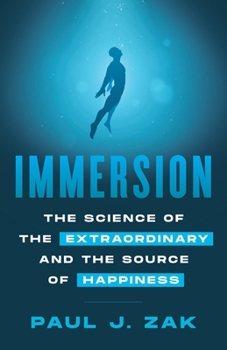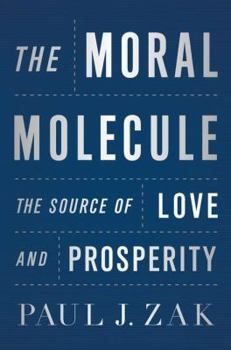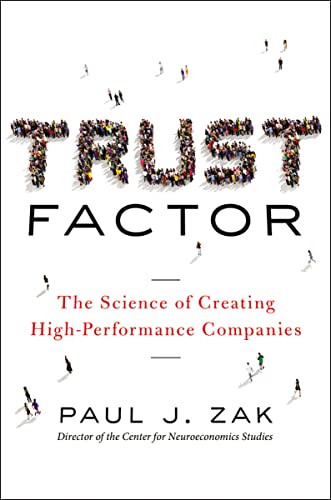Dr. Paul Zak – Neuro-economist & Originator of Immersion
Dr. Paul Zak – Neuro-economist & Originator of Immersion



Zak was one of the first scientists to integrate neuroscience and economics into a new discipline: neuroeconomics. His research has identified the brain processes that support such virtuous behaviors as trustworthiness, generosity, and sacrifice, as well as those whose absence leads to evil, vice, and conflict. He uses these results to increase flourishing by individuals, organizations, and societies.
After receiving his BA in mathematics and economics from San Diego State University, Zak completed his doctorate in economics at the University of Pennsylvania. Zak has taught at Caltech, Arizona State University, UC Riverside, and USC Law. At CGU, Zak directs the Center for Neuroeconomics Studies in addition to his teaching roles.
Zak’s book, Trust Factor: The Science of Creating High Performance Companies (January 2017), applies neuroscience to organizational culture to demonstrate that high trust improves the triple bottom line and it explores ways in which managers can create and sustain a culture of trust. His book The Moral Molecule: The Source of Love and Prosperity was published in 2012 by Dutton, a member of the Penguin Group. The book received much attention for its approach to understanding such human qualities as empathy, happiness, and the kindness of strangers.
Zak delivered a TED Talk titled “Trust, Morality—and Oxytocin?” in 2011 that has been viewed nearly two million times. His research has made a substantial impact in explaining the variation in human social behaviors and has been cited by other scholars over 18,000 times placing in the top 0.3% of all scholars. He also co-founded the first neuroscience-as-a-service (NaaS) company, Immersion Neuroscience.
- Zak, P. J., & Knack, S. (2001). Trust and Growth. The Economic Journal. 111: 295-321.
- Zak, P. J., Kurzban, R. & Matzner, W. T. (2004). The neurobiology of trust. Annals of the New York. Academy of Sciences, 1032: 224-227.
- Zak, P. J. (2004). Neuroeconomics. Philosophical Transactions of the Royal Society B (Biology), 359(1451), 1737-1748.
- Zak, P. J., Kurzban, R. & Matzner, W. T. (2005). Oxytocin is associated with human trustworthiness. Hormones and Behavior, (48): 522-527.
- Kosfeld, M., Heinrichs, M., Zak, P. J., Fischbacher, U. & Fehr, E. (2005). Oxytocin increases trust in humans. Nature, 435(2): 673-676.
- Zak, P. J., Stanton, A. A. & Ahmadi, S. (2007). Oxytocin increases generosity in humans. Public Library of Science ONE 2(11): e1128.
- Zak, P. J. (2008). The neurobiology of trust. Scientific American, June: 88-95.
- Zak, P.J. (2015). Why your brain loves good storytelling. Harvard Business Review. October.
- Zak, P.J. (2017). The neuroscience of trust. Harvard Business Review, January.
- Zak, P.J. (2019). How our brains decide when to trust. Harvard Business Review, July 18.
- Zak, P.J. (2020). Neurological Correlates Allow Us to Predict Human Behavior. The Scientist. Oct. 1.
- Johannsen, R., & Zak, P. J. (2021). The Neuroscience of Organizational Trust and Business Performance: Findings from US Working Adults and an Intervention at an Online Retailer. Frontiers in Psychology: Organizational Psychology, 11, 3858.


